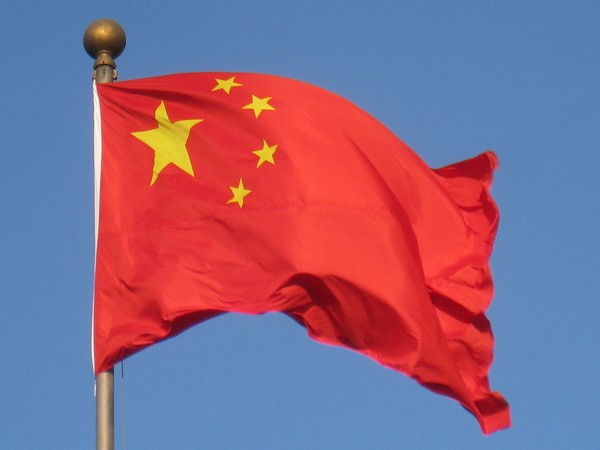China has for long attempted to dissuade the influence of the Dalai Lama in Tibet. A prominent strategy as part of the Chinese Communist Party’s (CCP) Sinicization process in Tibet has been to encapsulate many if not all of the disputed regions in the region under its own stronghold.
Such aspirations in the view of the Party have only been achieved by discrediting the Dalai Lama’s presence as an influential leader in Tibet.
More so, even after illegally occupying Tibet, China’s policies have enforced regressive Sinicization measures by forcefully assimilating its ethic population in Tibetan regions thereby further diluting the cultural blend of the region.
Chinese authorities have gone to the extent of attempting to cleanse Tibetan culture from the sacred lands and aggressively integrate it into the Chinese way of living.
The Tibetan population has been on the receiving end of various violent Chinese policies that intend to instil fear against any resistance that arises.
Apart from discrimination preventing the use of local culture and language, the communities are also banned from propagating the Dalai Lama’s name or writings.
In order to fend off the politicization of the Tibetan culture through the Party’s forceful approach, the international community has a very important role to play in preventing the CCP from further diluting Tibet’s religious autonomy.
Avoiding the preachings of the Dalai Lama thus has mostly resulted in state suppression of communities and news outlets in equal measure that seek to promote the Dalai Lama in Tibet.
More so, the Chinese state has also heavily relied on altering the local demography in an attempt to disbalance the ethnic and cultural blend of the region to assert its social dominance.
This has resulted in hundreds of young Tibetans self-immolating themselves and giving up on their lives to bring attention towards the regressive nature of the Chinese state.
Although the tactics by Chinese authorities does not end here, the CCP has been known to command the local governments to report all political crimes, snoop into personal conversations of leaders and profile DNAs of those it deems suspicious, all this without any accountability.
China’s policies in the region also rely heavily upon limiting foreign contact in Tibet as well as preventing economic prosperity and development in the adjoining regions.
The Party’s Intervention in Tibet’s Religious Processes
Above all such measures, the most aggressive of strategies deployed by the CCP is reflected in its interference of the reincarnation process of the Dalai Lama.
Since the annexation of Tibet in 1950, Beijing has tried to undermine the authority of the Dalai Lama and has sought to control the process of his reincarnation to install a figure who would be loyal to the Party.
This manoeuvre is aimed at reinforcing China’s sovereignty claims over Tibet, effectively eliminating any possibility of Tibetan autonomy or dissent.
The CCP’s efforts to control the reincarnation process was truly formalized in 2007 when it passed a law requiring all high-ranking Tibetan Buddhist leaders, or ‘Living Buddhas’ to seek approval from the Chinese government.
This legislation was intended to ensure that the next Dalai Lama will be chosen by Beijing and not the Tibetan religious community, aiming to severely undermine the legitimacy and spiritual authority of any successor appointed under such circumstances.
However, this strategy failed to gain the advantages Beijing had hoped to achieve.
On the contrary it has subsequently reinforced the belief in the Dalai Lama and his autonomy to reincarnate into a successor.
With the international community stressing on the need for an autonomous and religious approach, the CCP’s strategy has seemingly backfired to grant greater attention to the cause of Tibetan in exile as well as those living under difficult conditions under Chinese occupation.
In this context, India has emerged as an important place for the Tibetan community as well as the Dalai Lama himself.
Home to the Dalai Lama and the Tibetan government-in-exile since 1959, India has provided a sanctuary for safeguarding the much-threatened Tibetan Buddhism culture.
The city of Dharamshala in Himachal Pradesh, where the Dalai Lama resides, has become a global centre for Tibetan culture, religion, and education, attracting scholars, pilgrims, and practitioners from around the world.
India’s democratic and secular framework, in this specific case, offers a neutral and safe environment for the selection of the next Dalai Lama, free from China’s political influence.
New Delhi’s historical and spiritual ties with Tibet and its commitment to preserving Tibetan culture further cements its suitability as the ideal location for the sacred process of reincarnation.
By supporting the authentic Tibetan method of selecting the next Dalai Lama, India will not only reaffirm its stance on religious freedom but also stand against the politicization of spiritual traditions for geopolitical gain.
However, irrespective of where the process takes place, it is important to recognise the how in the question of succession.
In order to fend off the politicization of the Tibetan culture through the Party’s forceful approach, the international community has a very important role to play in preventing the CCP from further diluting Tibet’s religious autonomy.
Thus, a global call against Chinese practices of eroding Tibetan practices will be a crucial step in ensuring the culture stays intact instead of being corrupted for Beijing geopolitical gains.









Comment